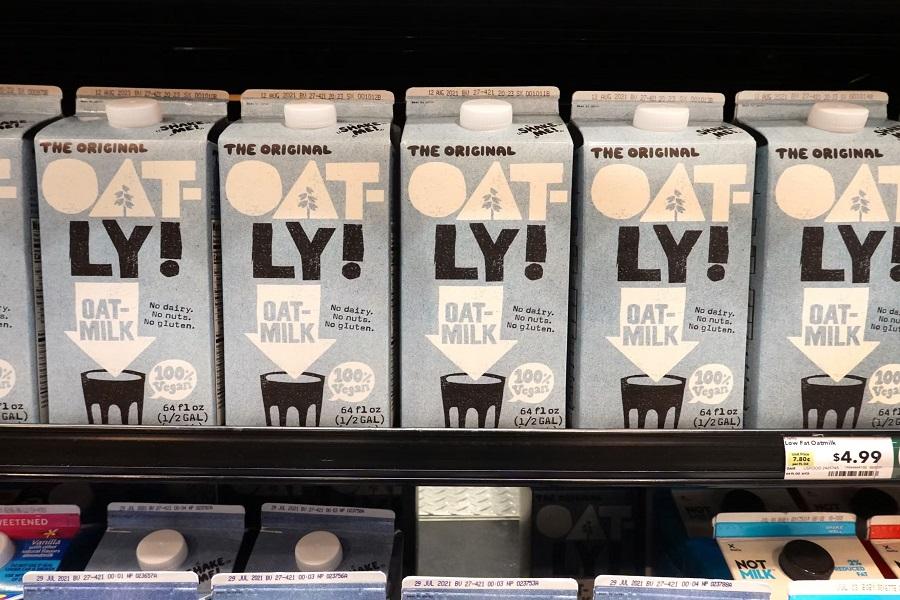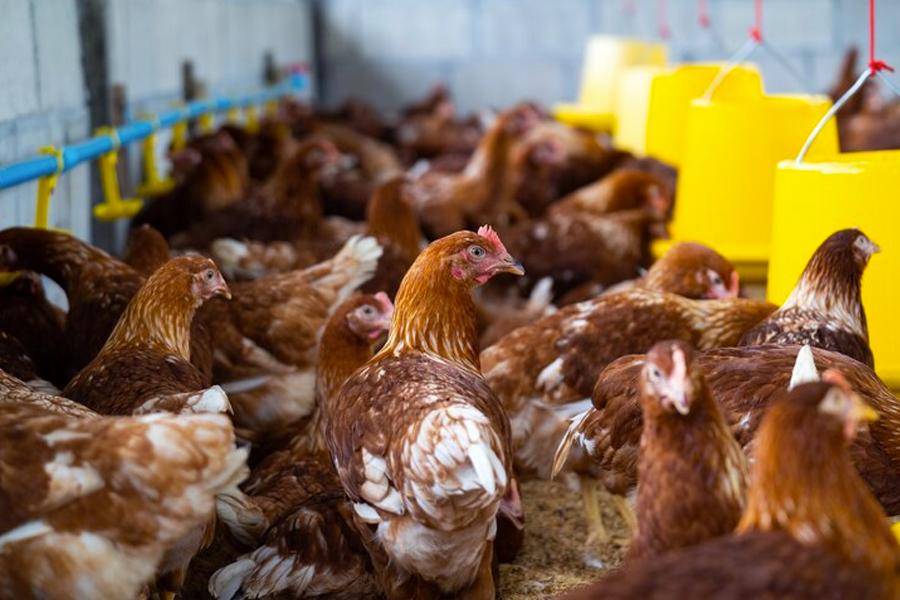In recent days the media has been claiming that the plant-based industry is stagnating, but the data says something different.
Much has been said in the mainstream press regarding the supposed stagnation of the plant-based industry in recent months.
A Guardian article just last Saturday, “Sales stagnate in UK as brands withdraw plant-based products,” and regurgitated by the Telegraph today, argues this case, citing the withdrawal of an Oatly ice cream, the discontinuation of Heck’s line of vegan sausages (which was by many accounts widely disliked by vegans after a change of recipe and rejected in favor of superior products on the market), as well as the discontinuation of Nestle lines such as Garden Gourmet, whilst failing to mention that Nestle and Oatly continue to launch new vegan products globally and innovate in the animal-free category.
Oatly responds
We spoke with Oatly regarding the recent press. Bryan Carroll, General Manager, Oatly UK & Ireland commented on the issue: “Like every food and drink brand, we continually evaluate our product mix and what we make available to consumers. This month alone we introduced four new products (Oatly Whole, Oatly Semi, Oatly Light and Oatly “No” Sugars) – representing the most product launches Oatly has undergone in one year in the UK.
“While Oatly’s ice cream tubs continue to be available in a number of our markets, we have made the decision to retire them in supermarkets across the UK and instead focus on launching new Oatly soft serve ice cream this summer, where an exciting opportunity to disrupt a new area of the ice cream segment exists.
“Any focus on one specific SKU in our product portfolio would not be fully representative of Oatly. Demand for our products remains strong – Oatly is the #1 selling oat drink, with 50% of our growth in the last year coming from shoppers buying dairy alternatives for the first time*. Oatly Barista Edition, for example, is the #1 selling dairy alternative in the UK, in both chilled and ambient varieties, and sells 94% more than the next best-selling dairy alt milk,**” he adds.
Look at the data
Contrary to this slew of anti vegan press, plant-based lifestyle, and along with it, the purchasing of plant-based products, appears to be expanding globally: “The meat substitutes sector shows the highest growth between 2017 and 2022 in value and volume (12.54% and 8.06%, respectively), indicating the growth in the plant-based market and vegan lifestyles,” according to a brand new report.
The report, as referenced by Retail Insight, shows that alternative proteins have become popular and that the trend is evidenced by growth: plant-based (8.92%); single-cell (8.62%), which refers to products like mycoprotein; soy-based (7.93%); and grain-based (7.56%).
This data offers businesses a global perspective of the market landscape to understand how consumer behavior is shifting to remain competitive. “Brands must acknowledge these areas of rapid growth and understand how consumer behavior is shifting,” advises Retail Insight.
Further data against stagnation (all data from 2023)
USA
A new report from CRB, a leading provider of services and consulting solutions for F&B manufacturers, revealed that 66% of alt protein companies in the USA had seen an increase in sales volume since 2021 — a signal that consumer demand for alt proteins is healthy and growing.
Additionally, the PBFA revealed in April in The Plant Based Foods State of the Marketplace report that the number of Americans consuming plant-based foods increased to 70% with several categories, such as plant-based creamers and eggs, seeing strong growth last year.
UK
A recent report by Straits Research concluded that the UK vegan food market is growing at a rate of 9.58%, with 40% of consumers saying they want plant-based alternatives to meat and dairy, and per capita meat consumption is declining.
Germany
In Germany, as we reported in April, meat consumption has dropped to a record low, while sales of plant-based products were at a record high last year. Additionally, production of plant-based meat last year increased by an impressive 72.7% compared to 2019.
Europe-wide
A new FoodLabs report revealed that European food & agtech startups raised $1.9 billion in VC funding in 2022, showing a 20% increase from 2021.
Furthermore, the GFI revealed last month that European plant-based food sales have increased by 22% since 2020, taking the total value of the category to a record $5.7 billion. Data from 13 countries also found that while plant-based sales have increased significantly, the prices of these foods have been much less affected by inflation than conventional animal products.
Global
A market report this March predicted that the global plant-based meat market will grow from $7.5 billion in 2021 to $15.8 billion in 2028 — almost doubling in value.
These are just a handful of the reports and studies released in the first months of this year suggesting that our nascent category will likely continue to develop despite its challenges, and will adapt accordingly. It is pertinent to remember that younger generations along with their purchasing habits now and in future will continue to affect the market. GenZers are increasingly rejecting animal meat products and report that they will continue to do so.
“While veganism might still seem a bit too extreme for much of the population, Gen Zers clearly prefer it more than any other generation. Their plant-based preferences are also changing the health and food landscape as we know it,” states Medical Inspiration Daily For Stronger Society (MIDSS), which polled the Gen Z population (individuals born between 1997-2012), currently the main driver of the US vegan market, finding that 70% who identify as vegan intend to stay vegan in the next five years or more.
Original source: https://vegconomist.com











